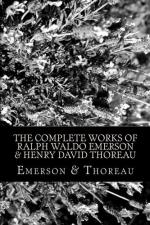|
This section contains 9,395 words (approx. 32 pages at 300 words per page) |

|
SOURCE: “Fate, Power, and History in Emerson and Nietzsche,” in ESQ: A Journal of the American Renaissance, Vol. 43, No. 1-4, 1997, pp. 267-93.
In the following essay, Friedl offers a comparison between the philosophical vision and the terminology expounded by Emerson and Nietzsche in some of their best-known essays.
1
Radical changes or innovations in the history of thinking—changes that characterize a whole new epoch—usually are not sufficiently accounted for when we limit our attention solely to changing concepts, tenets, propositions, or systems of belief. In his analysis of seventeenth-century rationalism and scientism, Alfred North Whitehead briefly characterized the conditions of the possibility of new modes of thinking in a given historical era:
There will be some fundamental assumptions which adherents of all the variant systems within the epoch unconsciously presuppose. Such assumptions appear so obvious that people do not know what they are assuming because no other...
|
This section contains 9,395 words (approx. 32 pages at 300 words per page) |

|


